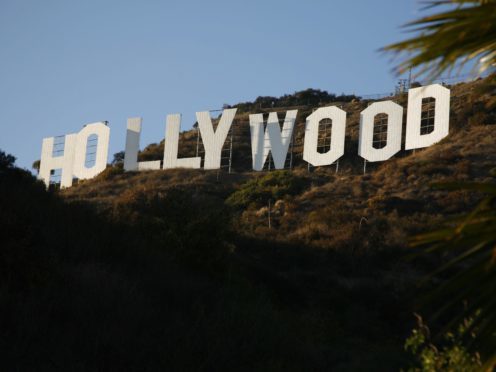The British film industry is lacking in gender equality in key production roles and can sometimes be worse for women than Hollywood, a new study has found.
Research conducted by academics from the University of Southampton and the University of Exeter found women directors, editors, cinematographers, screenwriters, producers and executive producers are under-represented in UK film.
The results come just months after American filmmaker Greta Gerwig became only the fifth woman to ever be nominated for a directing prize at the Oscars in its 90-year history.
Overall, more than half (56%) of British films looked at in the study were found to have one or no women in any of the key productions roles, compared with just less than a third (30%) of US films.
It was also found that films made in collaboration with the UK and other nations are more likely to have a female director, editor or screenwriter than those made solely in the UK.
The research found that nearly a quarter (24%) of directors are women on co-productions, compared with 11% on UK domestic films.
Another finding was that women cinematographers and producers are more likely to find work on lower budget films, and that women are “squeezed out” as the budget for a film rises.
The study, called Calling The Shots: Women And Contemporary Film Culture In The UK, was funded by the Arts and Humanities Research Council (AHRC), and saw the academics look at 203 British qualifying films in production in 2015 to collect their data.
These were compared with the top 250 films from the 2017 Annual Celluloid Ceiling report by San Diego State University, as the British films made in 2015 were mostly released in 2016/2017.
The results of the project were unveiled at events hosted by hosted by Women’s Film And Television UK at the Cannes Film Festival, where three of the 21 films in the competition this year have been directed by women.
Dr Shelley Cobb, from the University of Southampton, said: “We often encounter assumptions that the UK film industry must be better at gender equality than Hollywood, but our data clearly shows that this is not the case; in some ways the British industry is worse.
“Diversity and equality targets for funded films are good steps, but wider progress is going to require that white men notice how they dominate film sets and that they must consciously develop more diverse contacts and hiring practices.”
Professor Linda Ruth Williams, from the University of Exeter, said the research “identified in precise and damning detail the limited chances women have to flourish in the British film industry”.
She added that the “history-changing movements which have gripped the industry since last year belie the fact that it remains closed to women across many film-making professions.”
“Inequality of opportunity is rife. Will we still be telling this same old story at Cannes in 10 years’ time?”
The University of Southampton’s Dr Natalie Wreyford said the data is “further indication that the UK is not doing enough to improve gender inequality in key roles on British films, and it is troubling to consider what effect Brexit may have on women working in UK-qualifying films.”
